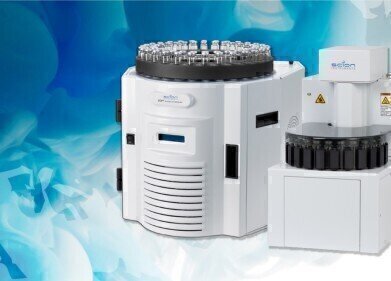Industrial news
Is Your Herbal Supplement What You Think It Is?
Feb 12 2015
The herbal supplement industry in the USA is a multi-million dollar venture, with 65,000 products being consumed by over 150 million Americans each year. Now, however, an investigation by Clarkson University in Potsdam, New York, has uncovered the possibility that the vast majority of these bottled supplements may not contain any of the substances they claim to.
James Schulte II, who is an expert in DNA barcoding technology, conducted the investigation by performing tests on three or four samples of every product purchased. In total, 78 samples were tested five times each (390 tests in all) to examine them for traces of DNA in the substances contained within. The results were not encouraging.
A Lack of DNA
Staggeringly, four out of five products tested did not contain any traces of the herbal supplement they were advertised to provide. The products tested included Echinacea, St John’s wort, gingko biloba, ginseng, garlic and saw palmetto, from four major retailers: Walmart, Walgreens, Target and GNC.
Only 21% of tested products with a store-brand name showed traces of the herb they claimed to supply, while Walmart scored the lowest of the four retailers. A gobsmacking 96% of their products did not contain any of the herbs they purported to sell, instead being comprised of filler products like beans, rice, citrus, primrose, wheat, asparagus, wild carrot, houseplant, pine and other unidentified plant material. In the event of allergy sufferers, regular ingestion of such materials could cause serious medical ailments.
As a result, New York Attorney General Eric Schneiderman has sent letters to each of the chains demanding a detailed explanation of their production, processing and quality control methods. “This investigation makes one thing abundantly clear: the old adage ‘buyer beware’ may be especially true for consumers of herbal supplements,” Schneiderman told members of the press.
DNA Testing Not Enough – Chromatography to the Rescue?
Meanwhile, the herbal supplement industry has hit back at Schneiderman and his actions, claiming that DNA testing is not sufficient since much of the DNA of the substances can become modified and therefore untraceable in the extraction process.
“Using DNA barcoding as the only method for identifying ingredients in popular herbal dietary supplements and ignoring all other well-established and valid methods of herbal analysis is a suspect analytical process at best, and likely to provide results that are inaccurate,” the chief science officer of the American Herbal Products Association, Maged Sharaf, responded. One such technique would be the use of chromatography, which would allow the substances to be separated out into their various components and identified.
Meanwhile, the president of the Council for Dietary Nutrition Steve Mister, was even more damning in his condemnation of Schneiderman's actions, calling them “uninformed, reckless and inexcusable”.
It appears the industry will continue to defend itself from such accusations by claiming the methods of investigation are unsatisfactory until chromatography is brought in to verify Schneiderman’s findings. It wouldn’t be the first time the advanced technique has been employed to detect the contents of consumer items. Back in 2013, the horsemeat scandal was a cause for concern for major UK retailers Tesco, Aldi and others, and chromatography proved that traces of horse were found in products marked beef. The story Is My Burger Horse? looks at those developments in further detail.
Events
Mar 18 2025 Beijing, China
Mar 25 2025 Paris, France
Mar 31 2025 Beijing, China
Apr 02 2025 Saigon, Vietnam
Apr 22 2025 Kintex, South Korea














